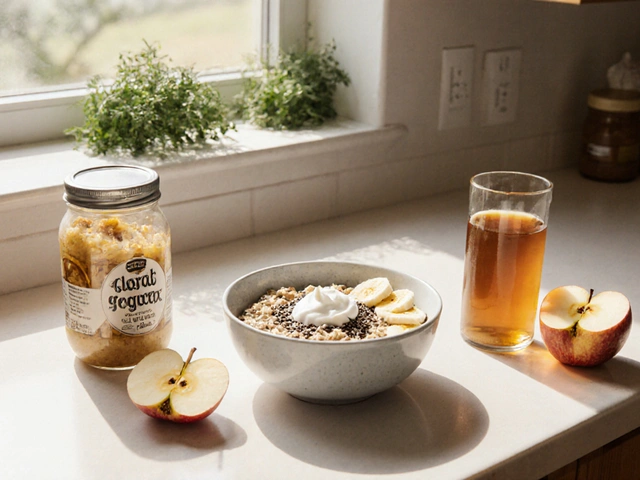The Crucial Connection Between Dietary Fibers and Gut Health
Dietary fibers, often overlooked in daily diets, are the unsung heroes of gut health. These plant-based substances, though indigestible by our bodies, serve pivotal roles in our digestive systems. They add bulk to the diet, aid in maintaining bowel regularity, and help prevent constipation. But the benefits of fibers extend far beyond just aiding digestion; they are also vital in modulating the body's use of sugars, helping to keep hunger and blood sugar in check.
A healthy gut does more than digest food; it significantly impacts overall health, immunity, and even mental wellness. High-fiber diets are associated with lower risks of developing numerous chronic diseases, including heart disease, diabetes, and colorectal cancer. But how does fiber exactly contribute to gut health? It feeds the beneficial bacteria in the digestive tract, which results in the production of short-chain fatty acids that are beneficial for health; they can reduce inflammation and improve immune functions.
Through the lens of recent studies, we're beginning to understand more about the diversity of fibers and their distinct roles. Soluble fibers, found in oats, nuts, seeds, and legumes, dissolve in water to form a gel-like substance, helping to slow digestion and lower cholesterol. Insoluble fibers, found in whole grains and vegetables, add bulk to the stool and help food pass more quickly through the stomach and intestines. Embracing a diet rich in a variety of fibers is thus essential for promoting a thriving, healthy gut microbiome.
Types of Dietary Fibers and Their Unique Benefits
Exploring the different types of fibers reveals a complex world of health benefits. Soluble fiber is a key player in managing blood glucose levels and lowering blood cholesterol. It acts as a prebiotic, providing food for beneficial gut bacteria, which in turn produce metabolites that influence health positively. Foods rich in soluble fiber include beans, lentils, oats, and fruits such as apples and blueberries.
On the other hand, insoluble fiber is crucial for adding bulk to the stool and ensuring regular bowel movements, crucial for preventing constipation. Sources of insoluble fiber include whole grains, wheat bran, and vegetables like carrots and tomatoes. Consuming a balanced amount of both types of fibers is thus essential for digestive health and can prevent the unpleasant effects of either constipation or diarrhea.
It's not just about preventing negative health outcomes; fibers also play a role in enhancing positive health. By slowing the absorption of sugar, high-fiber foods help control blood sugar levels, a vital factor for those managing diabetes. Additionally, fibers give a feeling of fullness, which is beneficial for weight control. With obesity being a precursor to many chronic diseases, fiber’s role in diet cannot be underestimated.
Practical Tips for Incorporating More Fibers into Your Diet
Incorporating more fibers into one's diet is easier said than done, especially in a world where processed foods are readily available and time for meal preparation is limited. One simple tip is to start by adding one serving of whole grains, fruits, or vegetables to every meal. This could be as simple as a banana with breakfast, a small side salad at lunch, and an extra serving of vegetables at dinner.
Additionally, replacing white bread, pasta, and rice with their whole-grain counterparts is an easy switch that significantly increases fiber intake. Snacking on nuts, seeds, or raw vegetables instead of chips or cookies not only boosts fiber but also reduces intake of unhealthy fats and sugars. Another tip is to keep the skin on fruits and vegetables like apples and cucumbers, as much of the fiber content is present in the skin.
Recipes can also be tweaked to increase fiber content. For instance, adding a handful of spinach to smoothies or using beans as a salad topping can effortlessly increase the fiber content of meals without compromising taste or satisfaction. It's also helpful to experiment with international dishes that typically include a variety of vegetables, legumes, and whole grains, such as Indian or Middle Eastern cuisine.
The Broader Impact of Fibers on Health and Disease Prevention
The broader impact of dietary fibers on health extends beyond the gut. Studies show that a high-fiber diet is linked with a reduced risk of developing various chronic diseases such as type 2 diabetes, heart diseases, and certain forms of cancer. Specifically, fiber's ability to lower body weight, improve insulin sensitivity, and decrease inflammatory markers plays a role in these protective effects.
Moreover, the fermentation process of fibers in the colon produces short-chain fatty acids that can have systemic health benefits. These compounds help regulate immune function and may inhibit the growth of harmful bacteria and cancer cells. As we advance our understanding of gut microbiota and its influence on overall health, the importance of dietary fiber only continues to grow.
The advantages of consuming a diet high in dietary fibers are clear. Not only does it aid in digestion and prevent diseases, but it also plays a significant role in maintaining a healthy weight and improving quality of life. As more people understand these benefits, hopefully, there will be a shift towards fiber-rich diets, paving the way for better health and prevention strategies against chronic diseases.





